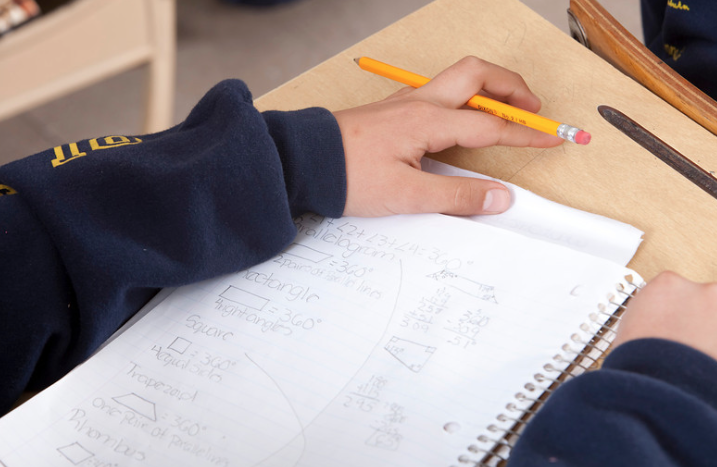
Fearful students, higher absentee rates and declines in parental involvement are some of the issues facing U.S. schools in an era of tougher immigration enforcement, an LMU-UCLA study has found.
Loyola Marymount University’s Jongyeon “Joy” Ee, assistant professor in the LMU School of Education, working with UCLA Civil Rights Project Co-Director Patricia Gándara, surveyed educators across the country to determine how tougher immigration policies have affected students and teachers. Nearly 85 percent observed students’ overt expressions of fear of an Immigration and Customs Enforcement (ICE) intervention in their lives, and 44 percent said this fear was “extensive,” the survey found.
The results appear a report released today by the Immigration Initiative at Harvard called “Under Siege: The Disturbing Impact of Immigration Enforcement on the Nation’s Schools.”
“Immigration enforcement is not just affecting people from immigrant families,” said Ee, who teaches urban education at LMU. “The empty chairs, the anxiety and the depression affects every student in the classroom. Classrooms as a whole are being affected as teachers struggle to teach in an atmosphere of stress and fear.”
Ee, who joined LMU’s Department of Teaching and Learning in August 2018, conducted the survey twice with Gándara using an online tool. Responses were collected from October 2017 to January 2018 and then again from August to September 2018 – when news of migrant families being separated during border crossings dominated headlines.
Ee and Gándara received survey responses from more than 3,600 educators from 24 school districts and two educator networks, representing more than 760 elementary and secondary schools in 13 states.
Nearly 80 percent of respondents reported observing emotional and behavioral problems among their immigrant students that many described as interfering with the students’ ability to attend to lessons. Additionally, 45.3 percent of educators observed decreased parent involvement due to immigration enforcement; 50.5 percent saw parents expressing concerns at school; and 58.3 percent reported increased absenteeism, a factor that can result in a loss in school funding.
The research found that all students experience the disappearing classmates and the behavioral responses of those students whose families are being affected.
“Teachers and administrators must also respond to the fears among both parents and students and the disruption in teaching and learning that this entails,” the report states.
“Under Siege” is the second piece of research to be released as part of IIH’s Issues Brief Series, an ongoing initiative to disseminate rigorous, nonpartisan, and non-ideological research on immigration issues across a broad range of discipline and perspectives.
More information about the Immigration Initiative at Harvard can be found here.



